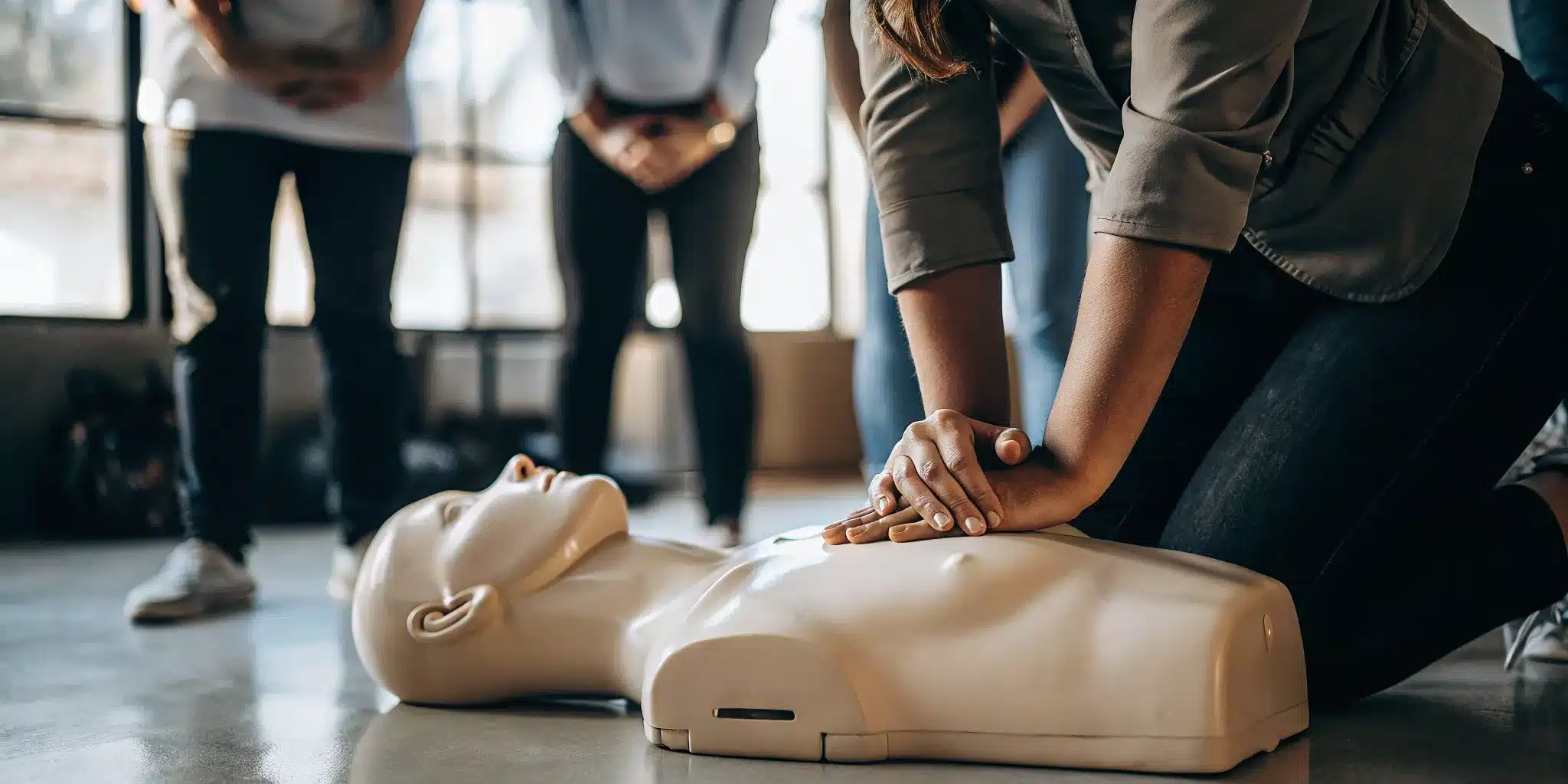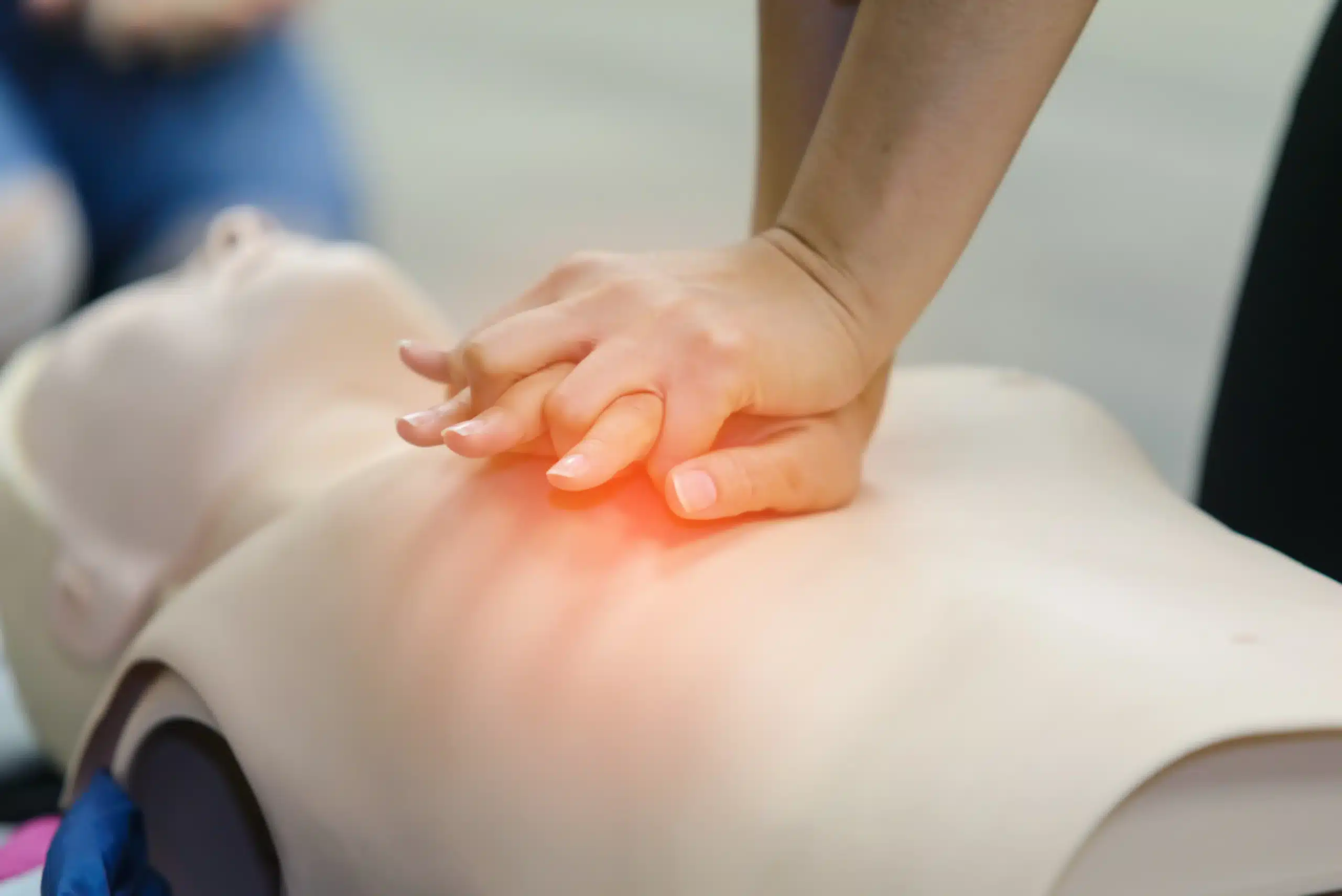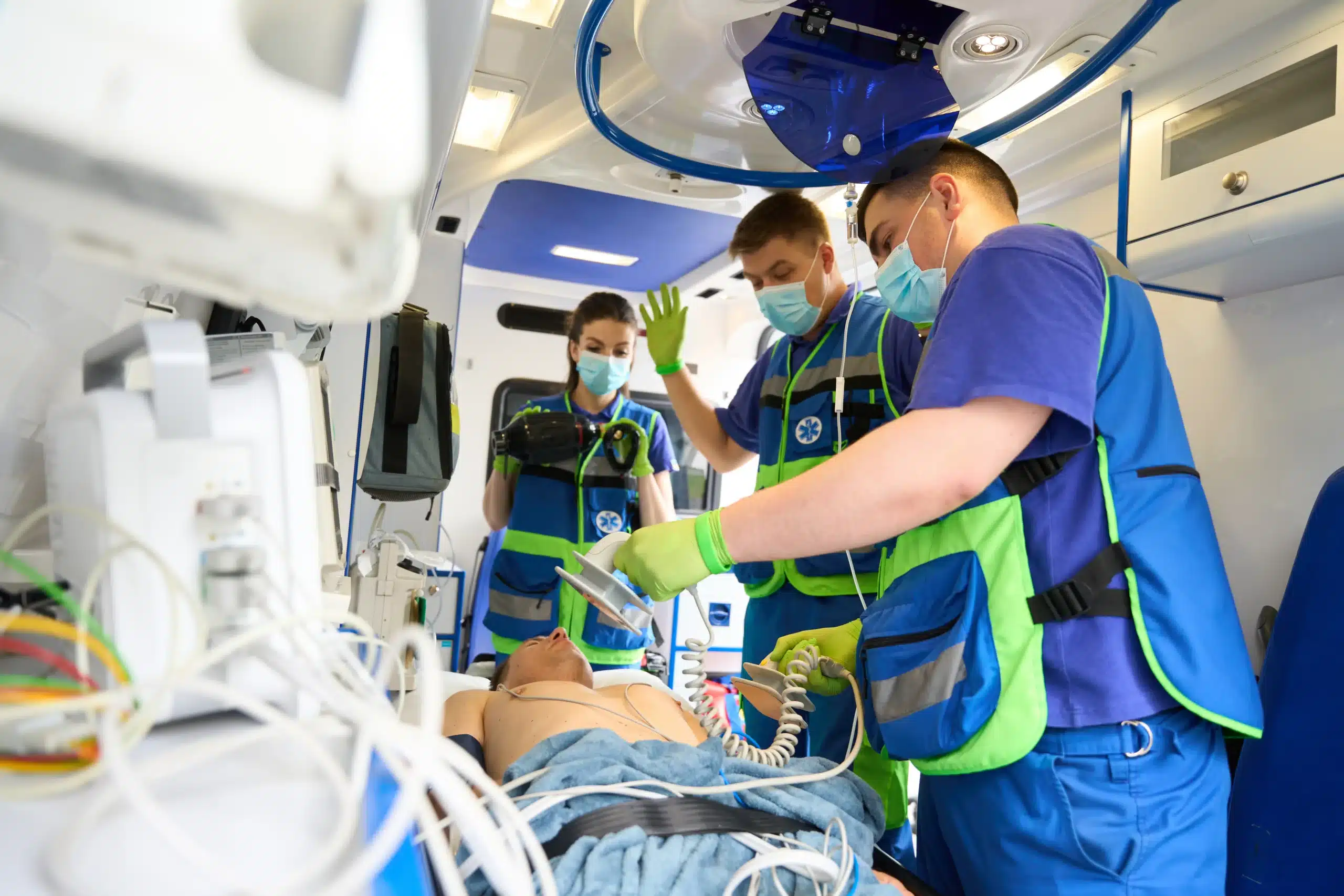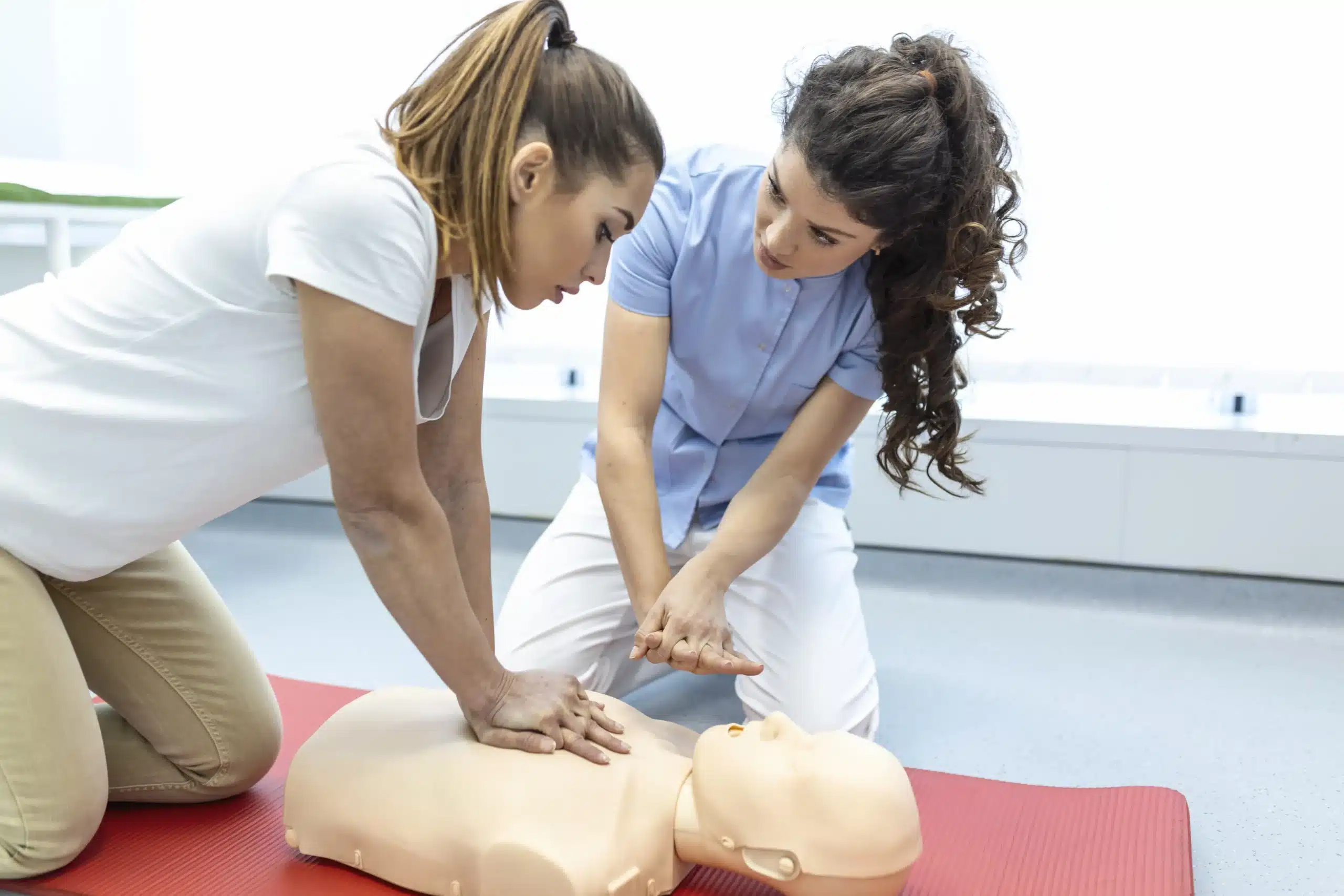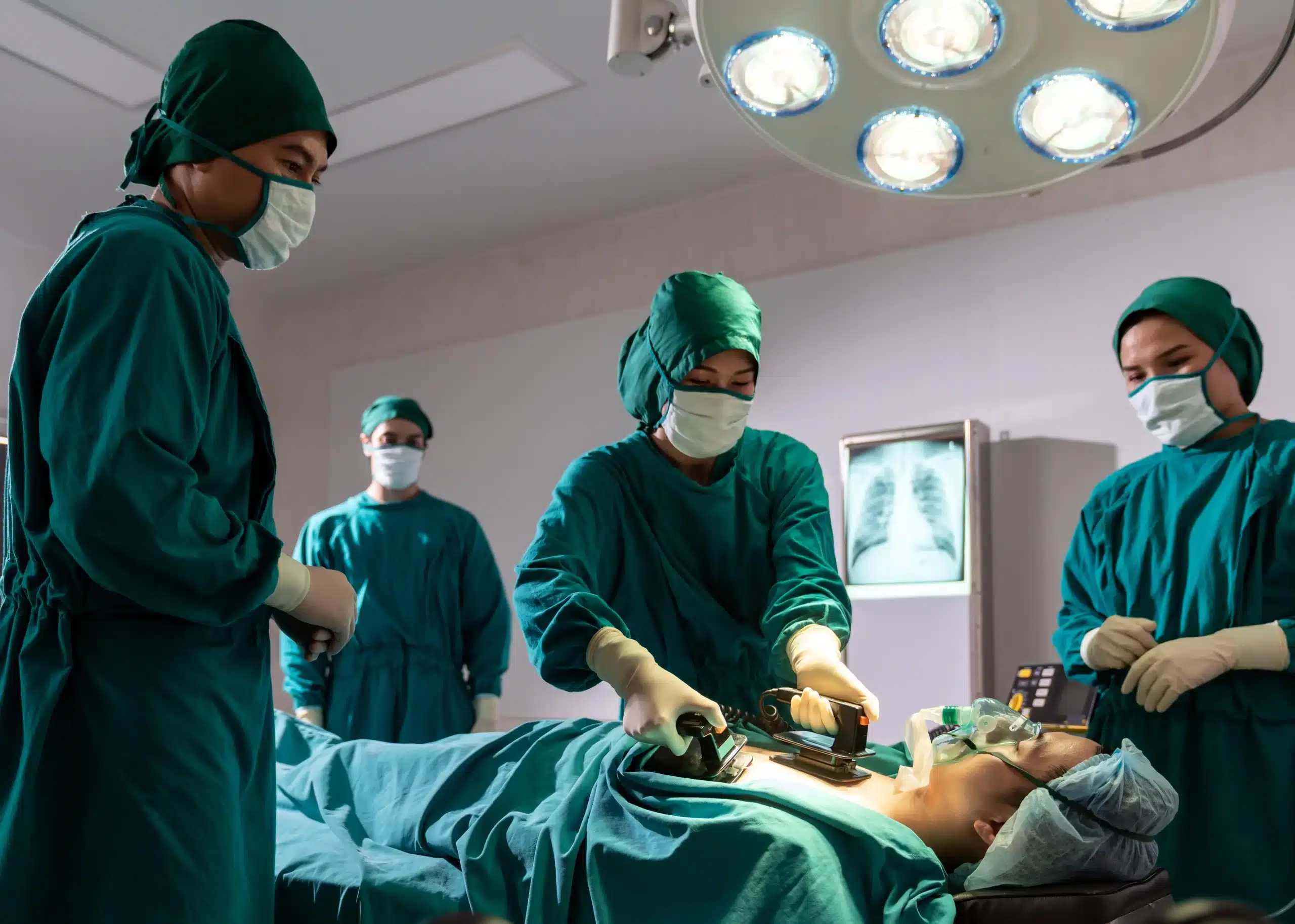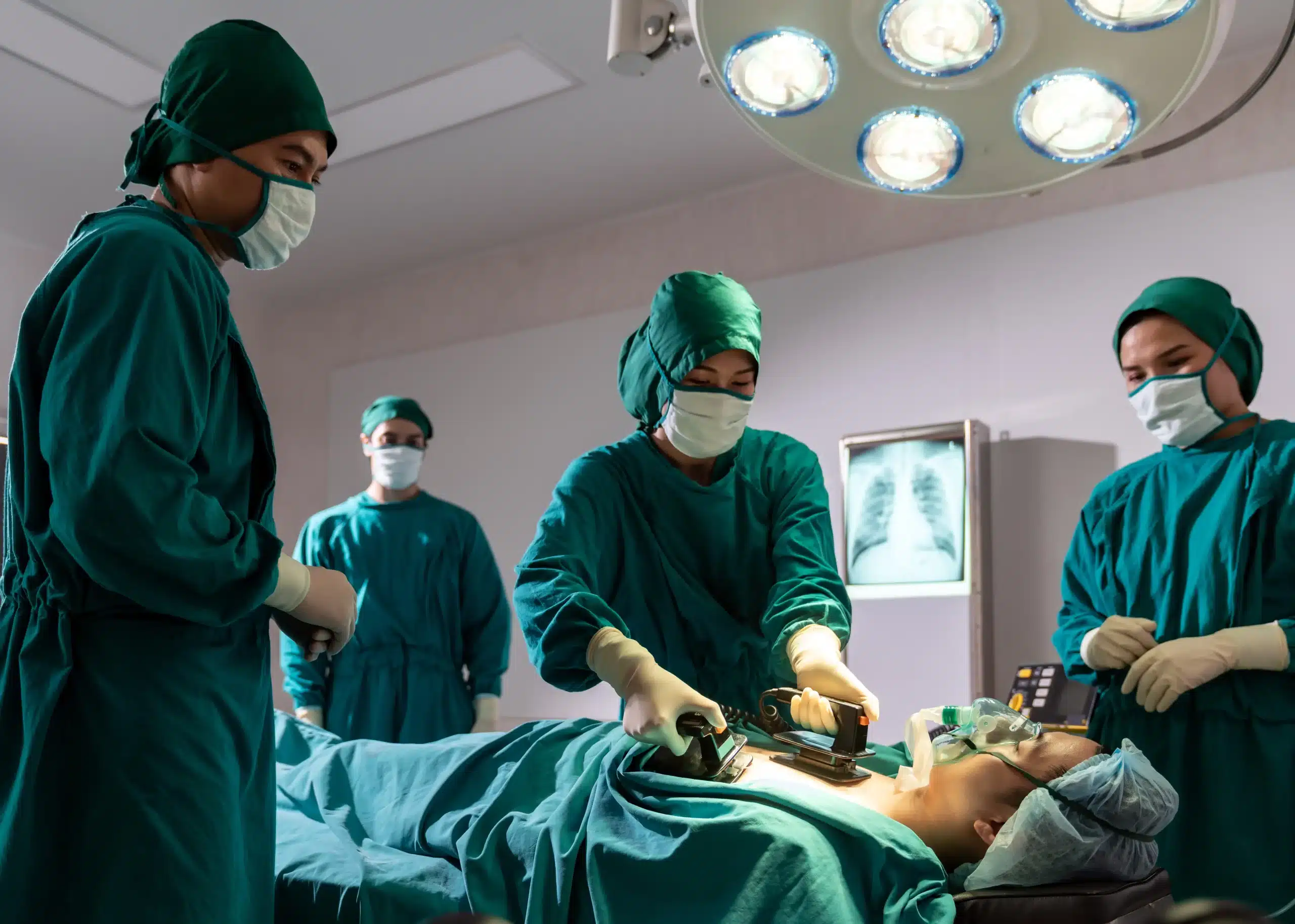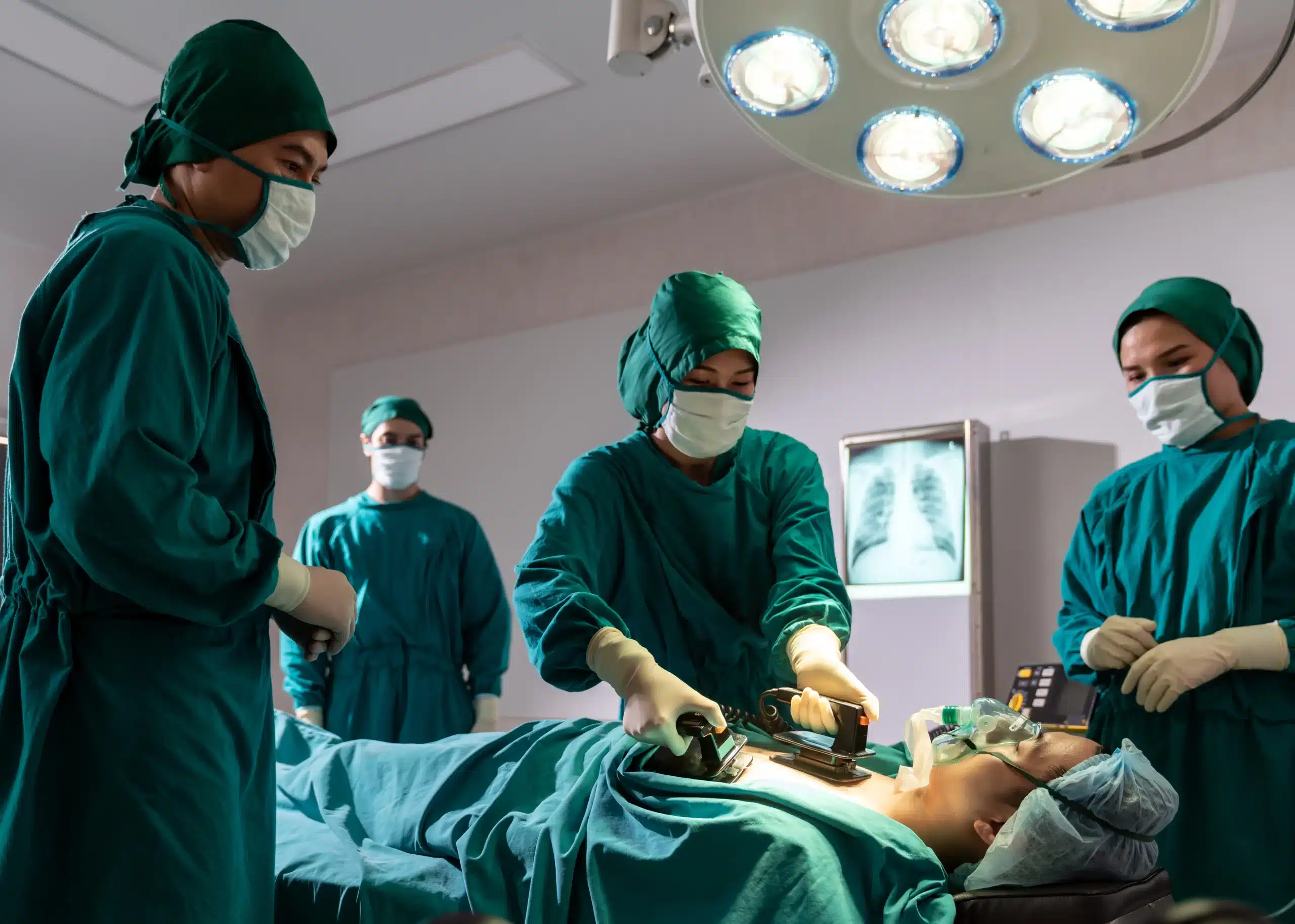In the fast-paced world of healthcare, maintaining top-notch CPR skills is paramount. For healthcare providers in Corte Madera, RQI (Resuscitation Quality Improvement) presents a game-changing approach to CPR training. Unlike traditional CPR certification, which can lead to skill decay between renewals, RQI focuses on consistent, “low-dose, high-frequency” practice. This innovative program combines online learning with hands-on skills sessions, using advanced technology to provide real-time feedback and personalized learning plans. This article delves into the world of RQI in Corte Madera, exploring how it empowers healthcare professionals to maintain peak performance and deliver the best possible patient care.
Key Takeaways
- RQI provides a practical approach to CPR training: The program’s flexible, blended learning format and shorter, more frequent sessions make it easier for healthcare professionals to maintain their skills and stay up-to-date with the latest guidelines.
- RQI uses innovative technology to improve CPR quality: Through realistic simulations and personalized feedback, providers can refine their technique and build confidence in their ability to perform effective CPR.
- RQI is accessible to healthcare providers in Corte Madera: Several training centers and online resources offer RQI certification, making it convenient for local professionals to enhance their skills and improve patient care.
What is RQI? Revolutionizing CPR in Corte Madera
RQI, or Resuscitation Quality Improvement, represents a significant advancement in CPR training for healthcare professionals in Corte Madera and beyond. Developed by the American Heart Association (AHA), RQI replaces the traditional, infrequent CPR recertification model with a continuous, skills-focused approach. This ensures healthcare providers maintain their CPR skills at a consistently high level, leading to better patient outcomes.
Traditional CPR training often involves lengthy classroom sessions and infrequent testing, which can lead to skill decay. RQI addresses this by using short, frequent training sessions combined with real-time feedback and personalized learning plans. This “low-dose, high-frequency” method reinforces crucial skills and helps providers retain knowledge more effectively. Think of it like regular workouts—short, consistent practice builds strength, just like RQI builds and maintains CPR proficiency. The program incorporates eSimulation technology and hands-on practice in a mobile Simulation Station, creating a dynamic learning experience. This blended learning approach allows providers to learn at their own pace, fitting training into their busy schedules. For healthcare providers in Corte Madera, access to high-quality RQI training means being equipped with the latest resuscitation techniques and best practices, contributing to a safer community.
How RQI Works
The Resuscitation Quality Improvement (RQI) program improves CPR skills for healthcare providers. It uses technology and evidence-based practices so participants learn and retain these critical skills. RQI’s unique approach involves quarterly training sessions, key for staying sharp on CPR techniques. This low-dose, high-frequency training lets healthcare professionals work through realistic patient cases using eSimulation, practicing and refining their skills in a safe environment. RQI’s mobile Simulation Stations make hands-on practice easier, fitting training into busy schedules (learn more about the RQI program). This blended learning approach combines online learning with hands-on practice.
RQI also includes skills assessments and cognitive evaluations, which promotes mastery learning. Participants are tested on their ability to perform CPR and their understanding of the principles behind it, ensuring a deeper level of comprehension (check out RQI’s resuscitation quality improvement). This approach ensures providers are ready for emergencies, ultimately improving patient outcomes. The program’s focus on regular practice and assessment helps healthcare professionals maintain their skills and confidence in providing high-quality CPR (more on RQI).
RQI vs. Traditional CPR: What’s the Difference?
RQI (Resuscitation Quality Improvement) represents a significant shift in how healthcare professionals maintain their CPR skills. While both traditional CPR courses and RQI programs teach the core techniques of CPR, their approach to training and skill maintenance differs. Traditional CPR certification typically involves a longer, in-person class with recertification every two years. This model can sometimes lead to skill decay between renewals. RQI, on the other hand, focuses on frequent, shorter practice sessions to reinforce skills and improve retention. Think of it like regular workouts at the gym versus infrequent, intense training sessions. Which keeps you in better shape overall?
One of the key distinctions of RQI is its emphasis on high-quality CPR. RQI programs use advanced simulations and real-time feedback to help providers achieve the optimal depth, rate, and recoil essential for effective compressions. Traditional CPR classes often include instructor-led skills checks, but these may not always provide the precise feedback needed to truly master high-quality CPR. RQI simulation stations offer personalized coaching and guidance, ensuring every minute of practice is effective.
The RQI training model, developed by the American Heart Association, centers around quarterly skills sessions. This low-dose, high-frequency approach helps prevent CPR skills decay, a common concern with traditional CPR training. Research shows RQI can significantly improve CPR quality, with some hospitals reporting a 20% increase in the second year. By incorporating realistic patient cases and mobile simulation stations, RQI helps providers learn and retain these life-saving skills.
Find RQI Training in Corte Madera
Finding the right RQI training program is crucial for healthcare professionals in Corte Madera. Here are a few options to consider:
San Rafael CPR Classes
San Rafael CPR Classes, conveniently located near Corte Madera, offers RQI training as part of their HeartCode® Complete program. This blended learning approach combines online coursework with in-person skills sessions and covers BLS, ACLS, and PALS certifications. This flexible format helps busy healthcare professionals fit training into their schedules.
CPR Test Center
CPR Test Center has been providing CPR training in Corte Madera for over 11 years. They use techniques developed by Drs. Ewy and Kern at the Sarver Heart Center, known for their expertise in resuscitation. CPR Test Center offers a variety of courses, including RQI, ensuring participants receive high-quality training and are prepared for real-life emergencies.
RQI Partners
RQI Partners is the organization behind the Resuscitation Quality Improvement program. They offer a data-driven, evidence-based program that verifies skills competence and provides insights for organizational improvement. For healthcare facilities in Corte Madera looking to enhance their resuscitation training and improve patient outcomes, exploring RQI Partners’ resources is a valuable step.
What Happens in an RQI Course?
RQI training blends online learning with hands-on practice and feedback. This approach makes it easier for healthcare professionals to fit crucial training into their busy schedules. Let’s break down each component:
Online Learning
The Resuscitation Quality Improvement (RQI) Program, developed by the American Heart Association (AHA), offers quarterly training to help healthcare providers master high-quality CPR skills. You’ll start with online modules covering the latest AHA guidelines. This online portion allows you to learn at your own pace and review material as needed.
Hands-on Skills Practice & Feedback
RQI goes beyond online learning to incorporate realistic simulations and personalized feedback. Using advanced technology, you’ll practice your CPR skills on manikins that provide real-time feedback on your compressions and ventilations. This hands-on practice reinforces what you learned online and helps you develop muscle memory and confidence. The program tracks your performance, providing valuable insights into your strengths and areas for improvement. This data helps hospitals understand how their staff performs and identify areas where additional training might be beneficial. SureFire CPR highlights how RQI’s flexible learning model accommodates busy healthcare schedules.
Getting Certified
Once you’ve completed the online modules and hands-on skills sessions, you’ll earn your certification. HeartCode Complete integrates with learning management systems and the RQI 1Stop platform, allowing you to complete your AHA BLS, ACLS, or PALS certification. This streamlined process makes it convenient for healthcare professionals to stay current on their certifications.
RQI’s Impact on Healthcare Professionals
Better Skills & Tracking
The Resuscitation Quality Improvement (RQI) program significantly improves the skills and tracking of healthcare professionals. Using realistic eSimulation patient cases and a mobile Simulation Station, RQI facilitates quarterly psychomotor skills activities crucial for maintaining CPR skills. This approach ensures that healthcare providers regularly practice and refine their skills in a realistic environment, essential for effective emergency response. As Laerdal Medical notes, the RQI program uses low-dose, high-frequency training to help learners achieve mastery. This method improves skill retention and allows for better tracking of individual progress. The flexible, self-directed nature of RQI makes it easier for busy professionals to fit training into their schedules, ensuring they can maintain their skills without disrupting their workflow.
Confidence in Emergencies
Confidence during emergencies is critical for healthcare professionals, and RQI training is instrumental in building that confidence. The program provides essential CPR training through advanced technology, allowing busy professionals to hone their skills in real-time. Real-time feedback during skill demonstrations enhances learning and prepares professionals to respond effectively under pressure. The American Heart Association emphasizes that the RQI program supports mastery of high-quality CPR skills, leading to improved outcomes in emergency care. This focus on mastery and quality, combined with the program’s flexibility, empowers healthcare providers to feel prepared and confident in their ability to provide life-saving care. Knowing they have consistently honed their skills through RQI can make a significant difference in the stressful environment of an emergency.
Flexible RQI Training Options
RQI (Resuscitation Quality Improvement) training offers healthcare professionals in Corte Madera a flexible approach to mastering essential CPR skills. One of the standout features of RQI is its adaptability to busy schedules, allowing learners to engage with the course material at their own pace. This blended learning approach is crucial for healthcare providers who often juggle demanding work hours. RQI seamlessly integrates into your routine.
RQI training also uses advanced technology to create a more engaging and effective learning experience. This technology provides real-time feedback, ensuring learners can practice and refine their skills efficiently. This makes the training both practical and impactful, reinforcing correct techniques and addressing areas for improvement immediately. The RQI program delivers cognitive eLearning and self-directed skills training in manageable sessions, making it easier to absorb and retain information.
For those looking for a fully self-paced option, HeartCode Complete offers a comprehensive solution. This program allows learners to complete their AHA BLS, ACLS, or PALS training entirely on their own schedule, through any learning management system or the RQI 1Stop platform. This flexibility ensures healthcare professionals can fit training into their busy lives without sacrificing quality.
Common RQI Questions
Thinking about RQI training but have some questions? You’re not alone. Here are answers to some common questions we hear from healthcare professionals in Corte Madera and beyond.
Time Commitment
One of the biggest advantages of RQI is its flexibility. Instead of blocking out hours for a traditional CPR class, the program uses a blended learning approach. This lets you complete the online portion at your own pace, fitting it around your busy schedule. Then, you’ll schedule short, regular skills sessions to demonstrate your proficiency. This blended learning model maximizes your training time and minimizes disruption to your workday. RQI’s emphasis on frequent practice ensures you maintain those crucial CPR skills.
Training Effectiveness
RQI isn’t just convenient—it’s also highly effective. Developed by the American Heart Association, the Resuscitation Quality Improvement (RQI) program focuses on consistent, quarterly training. This “low-dose, high-frequency” approach improves CPR skill retention and quality. Studies have demonstrated the positive impact of RQI programs on patient outcomes in community hospitals. By regularly refreshing your skills, you’ll be better prepared to respond confidently and effectively in a real-life emergency.
Cost & Value
While the upfront cost of RQI might seem comparable to traditional CPR, the long-term value is significant. Traditional CPR training often involves substantial time away from work, impacting productivity and potentially incurring extra costs for coverage. RQI’s flexible online component and shorter skills sessions reduce these expenses. Plus, the HeartCode Complete program through RQI Partners offers a streamlined way to complete your BLS, ACLS, or PALS certifications, further maximizing your investment. In the long run, RQI’s efficiency and focus on skill mastery can lead to cost savings and improved patient care.
What People Say About RQI in Corte Madera
RQI is changing how healthcare professionals in Corte Madera maintain their CPR skills. Many appreciate the program’s flexibility, allowing them to fit training into their busy schedules by completing coursework online. This blended learning approach offers convenience without compromising the quality of the training, with an emphasis on skills checks to ensure participants maximize their training time.
Beyond convenience, healthcare providers value the focus on performance improvement. The American Heart Association describes RQI as a performance improvement program designed to support mastery of high-quality CPR skills through quarterly training. This ongoing reinforcement helps professionals in Corte Madera stay sharp and confident. The real-time feedback, discussed in Learning RQI’s resources, is another frequently praised aspect, helping solidify learning and improve retention of crucial CPR skills.
Cost-effectiveness is also a significant factor. RQI Partners notes that the low-dose, high-frequency training model prevents skill decay and offers efficient use of resources, making RQI a financially sound choice. The structured nature of the program, with its emphasis on deliberate practice and real-time feedback, as highlighted by Learning RQI, contributes to its overall effectiveness and positive reception among Corte Madera healthcare professionals.
Sign Up for RQI Training in Corte Madera
Ready to level up your CPR skills and be truly prepared for emergencies? RQI training in Corte Madera is a fantastic option. The Resuscitation Quality Improvement (RQI) program, created by the American Heart Association (AHA), helps you master high-quality CPR skills through quarterly training. It’s designed for busy healthcare professionals, letting you sharpen your skills in real time with innovative technology.
If you prefer a flexible learning experience, check out the HeartCode Complete courses. These courses blend online learning with hands-on skills practice, so you can complete your AHA BLS, ACLS, or PALS training at your own speed.
Local providers in Corte Madera offer RQI training using Voice Activated Manikins, giving you instant feedback on your technique. This approach not only makes learning more engaging but also helps prevent CPR skill decay through low-dose, high-frequency practice. You can find RQI training sessions and sign-up information through local CPR training providers like San Rafael CPR Classes or directly through the RQI Partners website. For those looking for standard BLS certification, San Rafael CPR classes also offers an AHA BLS course.
Related Articles
- RQI Classes in San Rafael, CA – San Rafael CPR Classes
- CPR Certification in San Rafael: Your Complete Guide – San Rafael CPR Classes
- Why CPR is Important in Healthcare – San Rafael CPR Classes
- BLS ACLS PALS Training in San Rafael: A Complete Guide – San Rafael CPR Classes
- American Heart Association Course – San Rafael CPR Classes
Frequently Asked Questions
How does RQI differ from traditional CPR training?
RQI emphasizes short, frequent practice sessions compared to traditional CPR’s less frequent, longer classes. This “low-dose, high-frequency” approach helps healthcare professionals retain skills better and maintain proficiency over time. RQI also incorporates advanced simulation technology and personalized feedback, leading to higher-quality CPR performance. Think of it like regular gym workouts versus occasional intense training – consistency is key.
What if I have a busy schedule? How can I fit RQI training in?
RQI is designed with busy healthcare professionals in mind. The blended learning format combines online modules with shorter, more frequent hands-on skills sessions. You can complete the online portion at your own pace, anytime, anywhere. The in-person skills sessions are also designed to be efficient, minimizing time away from your other responsibilities.
Is RQI more expensive than traditional CPR certification?
While the initial cost might appear similar, RQI offers greater long-term value. Its flexible format reduces time away from work, minimizing lost productivity and associated costs. The improved skill retention also means less need for refresher courses down the line. Plus, some RQI programs streamline the certification process for BLS, ACLS, and PALS, making it a more efficient and cost-effective option overall.
Where can I find RQI training near Corte Madera?
Several providers offer RQI training in and around Corte Madera. San Rafael CPR Classes, conveniently located near Corte Madera, offers RQI as part of their HeartCode Complete program. You can also explore options through CPR Test Center and RQI Partners directly. Checking their websites or contacting them directly will give you the most up-to-date information on schedules and availability.
What technology does RQI use, and how does it enhance learning?
RQI utilizes eSimulation technology and mobile Simulation Stations. eSimulation provides realistic patient scenarios and allows for practice in a safe environment. The Simulation Stations offer hands-on practice with manikins that provide real-time feedback on compression depth, rate, and recoil, ensuring you develop and maintain high-quality CPR skills. This technology-driven approach makes learning more engaging and effective.
